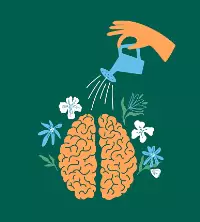
If you’re the kind of person who drops everything to help others, it reflects your remarkable empathy, compassion, and generosity. But while you show endless care for those around you, are you offering the same kindness to yourself? Many altruistic individuals focus so much on others that they neglect their own well-being. At Chapin & Russell Associates, we believe that self-care isn’t just essential—it’s the cornerstone of helping others effectively. After all, how can you support those who rely on you if you’re running on empty? Self-care is a practice everyone deserves to understand and embrace. If you’re unsure how prioritizing your needs can benefit those around you, allow Chapin & Russell Associates to explain.
What is Self-Care?
As it sounds, self-care is the practice of engaging in activities that improve your physical, mental, and emotional well-being. It’s not about being selfish or putting yourself above others, but rather recognizing that taking care of yourself is necessary for being able to take care of others. Self-care can encompass a wide range of activities such as exercise, spending time in nature, indulging in hobbies, and setting boundaries with people who drain your energy.
Why is Self-Care So Important?
How can you expect to care for others if you can’t care for yourself? Let’s put it this way: think of self-care as a vehicle. In addition to driving yourself around, you use a vehicle to give friends and family a lift. However, if you neglect regular maintenance for your vehicle, its systems may begin to fail and eventually become too unsafe for anyone to drive or ride. Just as a well-maintained vehicle provides a safe and reliable journey, practicing self-care empowers you to navigate life’s demands with resilience and confidently (and effectively) lend others aid.
What are Self-Care’s Benefits?
Thanks to self-care, you increase your capacity to handle daily stressors and reduce particular physical and mental health concerns. Not to mention, partaking in self-care increases your appreciation of life’s little positive moments, allowing you to stay in the present and be more mindful. Some additional benefits that self-care can provide include:
- Improved Physical Health – Regular exercise, proper nutrition, and sufficient sleep contribute to increased energy levels, a strengthened immune system, and reduced risk of chronic illnesses.
- Enhanced Mental Health – Taking time for activities that bring you joy, practicing mindfulness, and seeking support can help reduce stress, boost mood, and improve overall mental resilience.
- Increased Productivity – Giving yourself permission to take breaks and engage in activities you enjoy can enhance your ability to perform tasks efficiently, improving your focus, concentration and productivity.
- Better Relationships – When you prioritize self-care, you have more energy, patience, and emotional availability to nurture and sustain meaningful connections with others.
- Stress Reduction – Engaging in stress-relieving activities, such as meditation, deep breathing exercises, or spending time in nature, can help reduce stress levels and promote a sense of calm and relaxation.
- Increased Self-Compassion – Self-care cultivates self-compassion, which involves treating yourself with kindness, understanding, and acceptance. By nurturing a positive relationship with yourself, you develop a stronger sense of self-worth and resilience in the face of challenges.
How Can You Incorporate Self-Care into Your Life?
It’s time to treat yourself! However, we’re not talking about self-indulgence. While it’s okay to do something more indulgent now and again, this isn’t a long-term solution to your or other’s well-being. Self-care has to do more with engaging in activities that benefit your overall well-being in the long run. Thankfully, there’s plenty you can do to promote your physical, mental, and emotional health that has lasting effects:

- Practicing Mindfulness – Meditation or mindful activities like yoga or journaling promote self-awareness and reduce stress.
- Prioritizing Sleep – Ensure you get enough quality sleep each night to rejuvenate your body and mind.
- Physical Exercise – Engage in regular physical activity, such as walking, jogging, dancing, or playing sports.
- Nourishing Nutrition – Consuming a balanced diet of nutritious foods fuels your body and supports your overall well-being.
- Setting Boundaries – Learn to say no when necessary and establish healthy boundaries to protect your time and energy.
- Pursuing Hobbies – Take time to indulge in hobbies that bring you joy and fulfillment, such as painting, playing a musical instrument, gardening, or cooking.
- Connecting with Loved Ones – Maintain meaningful relationships by spending quality time with family and friends, engaging in conversations, or planning activities together.
- Unplugging from Technology – Take breaks from screens and digital devices to disconnect from the virtual world and reconnect with yourself and the physical world.
- Engaging in Self-Reflection – Set aside time for self-reflection, introspection, and personal growth. This can include journaling, practicing gratitude, or seeking counseling.
- Taking Breaks and Relaxing – Allow yourself moments of relaxation and leisure, whether taking a bath, reading a book, listening to music, or simply doing nothing.
For Additional Help Practicing Self-Care, Call Chapin & Russell Associates
As much as you want to help others, you must first help yourself! Practicing self-care promotes a healthier, happier self and gives yourself the capacity to assist others. However, if you find yourself still having trouble practicing self-care or overcoming other mental health concerns, reach out to the counselors at Chapin & Russell Associates today! You can schedule a counseling session with one of our therapists by calling 309-396-6731. We supply general counseling services to residents in Peoria, Morton, Washington, and communities across Central Illinois.


